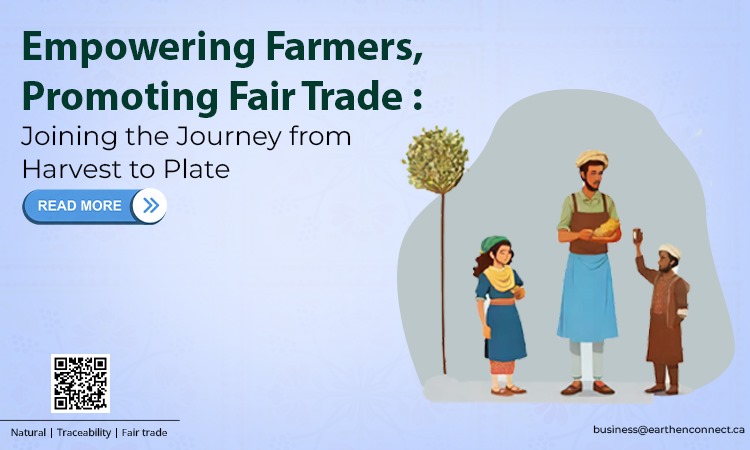From harvest to plate, there are complex networks of producers, distributors, and consumers in the modern world where globalization has connected remote parts of the world. The empowering of farmers and the advancement of fair trade standards, however, are often overlooked amid this convoluted road. Earthen Connect is committed to empowering dedicated farmers and offer Farmers, the basis of our food system, are essential to maintaining food sustainability and security. However, they are often left out of the supply chain and face various challenges, such as shifting market prices and restricted access to information and resources. Small-scale farmers in emerging nations suffer from these challenges. They strive to make ends meet while meeting the needs of an increasing population.
How Fairtrade Helps Farmers
Giving farmers the resources, information, and instruments they need to stand up for their rights and enhance their standard of living is part of empowering them. To do this, encouraging fair trade practices is one of the best strategies. To guarantee that farmers are fairly compensated for their labor and have access to stable markets, fair trade principles promote relationships between producers and consumers that are equitable.
How Consumers Impact Fairtrade
Customers may actively contribute to the development of a more equitable and sustainable food system by supporting fair trade. Whether you choose to purchase fresh produce, coffee, or chocolate, you are investing in the well-being of farming communities worldwide when you choose to buy fair trade items. By allowing farmers to reinvest in their operations, upgrade infrastructure, and get access to healthcare and education, fair-trade payments help to end the cycle of poverty and promote long-term economic growth.
Furthermore, fair trade certification requirements place a high value on ethical and environmentally sustainable production methods, as well as on encouraging the preservation of biodiversity and reducing the use of dangerous chemicals. Consumers who support fair trade help to mitigate climate change and preserve ecosystems, having a positive effect that goes well beyond their own shopping decisions.
But everyone concerned must work together to make the transition to a more equitable and sustainable food system. To support fair trade efforts, encourage ethical business practices, and enable farmers to actively engage in decision-making processes, governments, corporations, and civil society organizations must collaborate.
Driving significant change also requires increasing public understanding of the value of fair trade and consumer empowerment. Consumers can be empowered to make values-aligned decisions by being informed about the social, economic, and environmental effects of the products they buy through the use of advocacy campaigns, community outreach initiatives, and educational campaigns.
Conclusion
Creating a more just, resilient, and sustainable food system requires supporting fair trade practices and empowering farmers. Earthen Connect offers a range of food products, such as spices, rice, seeds and honey, produced through natural agricultural methods. We support the fair-trade system and help farmers, consumers and the environment. Let’s work together to build a society in which all farmers are fairly compensated for their labour and consumers have access to delicious, sustainably sourced and ethically produced food.

